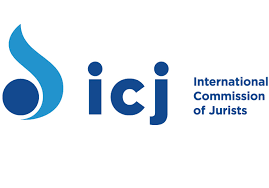
https://www.icj.org/nepal-proposed-bill-allowing-government-to-withdraw-...
The ICJ calls on the government to withdraw or modify the proposed bill to bring it into conformity with its international legal obligations.
The Bill to Amendment Some Nepal Acts, 2023 (2080 BS), particularly its Clause 64, aims to empower the Government to withdraw cases related to serious crimes perpetrated by political party leaders or activists. This proposed amendment introduces a new section 116 (a) to the Criminal Procedural Code, providing such authority for: “cases of any nature, under consideration by any courts, filed against any activist or leader of a political party or group, waging violent activities expressing their dissatisfaction with the political system of the country, if they agree to conduct their political activities peacefully, respecting the constitution of Nepal and the Government has entered into the agreement with them.’
“This provision of the bill, if passed, would enable the Government to withdraw cases involving heinous crimes committed by activists and leaders of political parties even if they have committed serious human rights abuses which would seriously undermine justice for victims, the rule of law, accountability and judicial independence in Nepal,” said Mandira Sharma, Senior International Legal Advisor in the ICJ Asia-Pacific Programme.
International law, including human rights treaties to which Nepal is a party, require that it conduct thorough and impartial investigations into human rights violations and abuses amounting to crimes under international law and bring the perpetrators to justice in fair trials. Such offences include enforced disappearance, extrajudicial killings, torture and ill-treatment including rape and sexual violence, war crimes and crimes against humanity. Amnesties or similar legal devices which undermine this obligation to prosecute are prohibited. The proposed provision runs counter to these obligations and established Supreme Court jurisprudence and the Fundamental Rights and judicial powers stipulated in Articles 126 and 128 (4) of the Constitution.
‘This proposed provision risks undermining ongoing efforts to amend the law concerning Transitional Justice, which would aim at establishing accountability for the crimes committed during Nepal’s armed conflict from 1996 to 2006, as it also allows for the withdrawal of cases against former rebel groups.’ Sharma further added.
For media inquiries and additional information, please contact:
Mandira Sharma (English, Nepali) Phone: +977 9851048475 Email: mandira.sharma@icj.org
Background
Nepal is grappling with entrenched impunity for human rights violations and abuses. In 2014, Nepal enacted the Commission on Investigation of Enforced Disappearances, Truth and Reconciliation Commission (TRC) Act, empowering the two Commissions to establish truth, justice and also to recommend amnesty even for those involved in certain serious human rights violations, constituting crimes under international law. Several sections of this Act are incompatible with Nepal’s Constitution and international human rights obligations. The Supreme Court’s 2015 ruling directed the Government to amend the law to bring it into conformity with its legal obligations. Attempts have been made to amend the law, including a recent bill tabled in the parliament in March 2023 to amend the TRC Act. While the March bill also contains provisions that continue to undermine Supreme Court decisions and Nepal’s international human rights commitments, the bill remains under discussion.
While the efforts to amend the TRC Act is ongoing, on 16 July 2023, the Government of Nepal tabled the present Bill to Amend Some Nepal Acts in the House of Representatives. The overarching objective of the bill is to amend a total of 79 different Acts, including crucial amendments to the Penal Code.
Despite opposition from some parliamentarians, the majority approved the bill’s tabling. The Government claims that the proposed provision (Clause 64) is intended to mainstream political forces engaging in violent protests and does not undermine the judiciary.
The Government has previously withdrawn cases against political leaders and activists also involved in serious crimes such as murder, abduction, even in defiance of Supreme Court directives. This practice has drawn concern from the Court, as it could compromise the pursuit of justice and undermine the rule of law.










Add new comment